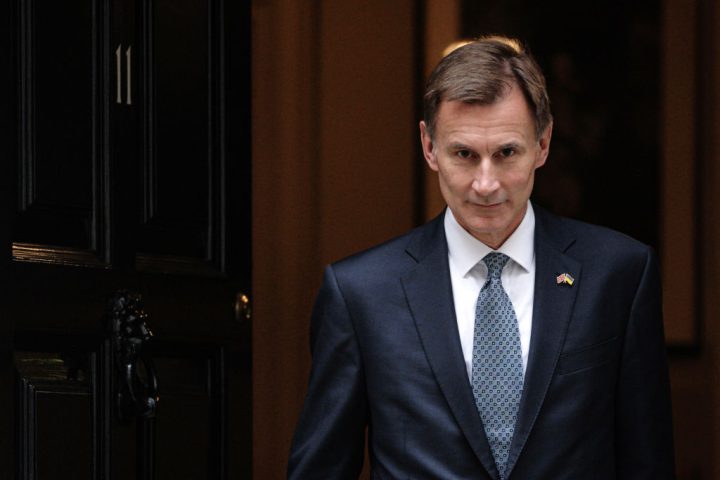All eyes are on tomorrow’s inflation rate figures, which need to start falling fast for Rishi Sunak to make good on his pledge to ‘halve inflation’ by the end of the year. But this morning we got an update on the one pledge from No.10 that was never likely to be made good on: the promise to get national debt falling.
This morning’s figures show us the extent to which those numbers are going in the wrong direction. Public sector borrowing in the month of April rose to £25.6 billion, almost £12 billion more than April last year. This makes last month the second-highest borrowing April on record.
Rather than the pandemic years becoming a one-off spending spree, we increasingly see in the data how they ushered in a new era of substantial borrowing for a variety of measures. In his statement on the figures this morning, chancellor Jeremy Hunt notes the government was ‘right’ to borrow ‘billions to protect families and businesses against the impacts of the pandemic and Putin’s energy crisis’. But the support was only a glimpse of what was to come months later, when the Energy Price Guarantee was announced – a scheme that rivalled many of the Covid policies for its level of intervention (and also its price tag).
While the borrowing figures for the last fiscal year have been revised down slightly – to £137.1 billion, down by roughy £2 biillion – public sector net debt, both in total and as a percentage of GDP, is only moving in one direction: up. But the start of the new fiscal year suggests another year of record high borrowing, with Capital Economics this morning estimating that the ‘Chancellor is already on track to overshoot the OBR’s full-year borrowing forecast of £132 billion'.
Amongst all the new spending announced over the last year, it is higher debt servicing payments that are also hiking up the monthly borrowing costs. Due to the Britain’s particular sensitivity to index-linked gilts, borrowing costs surged once again to £9.8 billion in April this year, ‘£3.1 billion more than April 2022 and the highest April figure since monthly records began in 1997'.
Today's figures put pressure on the government to carry on its narrative from last year when it first came into No.10: that the public finances have got too out of control and it's time for restraint and discipline. But it's not the narrative that they want to bring into an election season: both Sunak and Hunt are well aware that more giveaways (and certainly some kind of tax cut) are going to be necessary to be competitive. Today's numbers are a harsh reminder of the trade-offs that might have to take place to offer such things – one of them being the overall health of the public's finances.







Comments